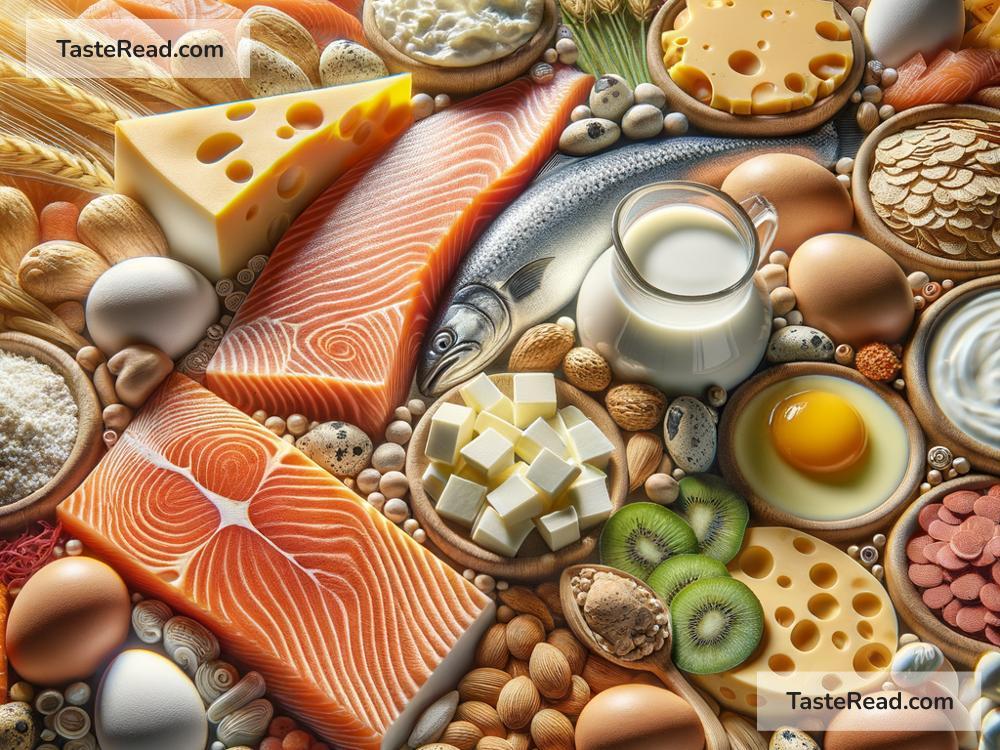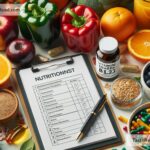The Role of Vitamin B12 in Metabolic Health
Vitamin B12 is a nutrient that’s like a superhero for your body. It plays a key role in keeping you healthy, especially when it comes to your metabolism. A good metabolism helps your body turn food into energy and keeps you feeling active and strong. In this article, we’ll take a closer look at why Vitamin B12 is so important for metabolic health, how it works in your body, and how you can make sure you’re getting enough of it.
What Is Vitamin B12?
Vitamin B12 is one of the eight B vitamins your body needs. Its scientific name is cobalamin. Unlike other vitamins, B12 is particularly important because it does many jobs in your body. It helps with producing red blood cells, keeping your nerves healthy, and making DNA—the instructions your body uses to grow and repair itself. Because Vitamin B12 is essential for so many functions, not getting enough of it can lead to serious health problems.
How Does Vitamin B12 Impact Metabolic Health?
Metabolism is the process by which your body converts food energy into fuel for everyday activities, like walking, thinking, and even sleeping. Vitamin B12 helps make this process run smoothly by playing three key roles:
1. Energy Production
Vitamin B12 helps your body break down the food you eat into fuel it can use. Specifically, it assists in converting carbohydrates, fats, and proteins into glucose, which gives your body energy. Without enough Vitamin B12, this process slows down, leaving you feeling weak, tired, or even dizzy.
2. Red Blood Cell Formation
Red blood cells carry oxygen throughout your body. Vitamin B12 is essential for producing these cells. When your body doesn’t have enough B12, you can develop anemia—a condition that makes it hard for oxygen to reach your muscles, organs, and tissues. This leads to fatigue and a slower metabolism.
3. Nerve Function
Your nervous system is like the body’s communication network, sending signals to your brain and muscles to help them function properly. B12 helps maintain the health of your nerves by protecting the fatty covering around them. This not only keeps your nerves working efficiently but also prevents problems like numbness or tingling in your hands and feet.
Signs You’re Low on Vitamin B12
Not having enough Vitamin B12 can lead to deficiency-related health problems. Here are some common signs that your body might need more of this important vitamin:
- Fatigue: Feeling tired all the time even if you’re getting enough sleep.
- Pale or Yellow Skin: Your skin may look lighter than usual or develop a yellow tone.
- Nerve Issues: Tingling sensations or numbness in your hands and feet.
- Difficulty Thinking Clearly: Trouble focusing or feeling foggy-headed.
- Anemia: Symptoms include shortness of breath, dizziness, and weakness.
If you’re experiencing any of these symptoms, it’s a good idea to talk to your doctor.
Who Is at Risk for Vitamin B12 Deficiency?
Some people are more likely to have low Vitamin B12 levels than others. Here are the groups at risk:
1. Vegans and Vegetarians
Vitamin B12 is mostly found in animal-based foods, like meat, fish, and dairy. If you’re vegan or vegetarian, you might not be getting enough from your diet.
2. Older Adults
As people age, their stomach produces less acid, which is needed to absorb B12 from food. That’s why older adults are at higher risk of deficiency.
3. People with Medical Conditions
Conditions like Crohn’s disease, celiac disease, and diabetes can affect how well your body absorbs B12. Additionally, people who take certain medications, like antacids or diabetes drugs, may have trouble absorbing B12.
4. People with Pernicious Anemia
This condition occurs when your body doesn’t produce enough “intrinsic factor,” a protein needed to absorb B12.
How to Get Enough Vitamin B12
The good news is it’s easy to boost your Vitamin B12 levels through diet, supplements, or medical treatments, depending on your needs. Here are some options:
1. Eat B12-Rich Foods
The best sources of Vitamin B12 are animal-based. Foods like beef, chicken, fish, eggs, and dairy are packed with this nutrient. If you follow a plant-based diet, you can opt for fortified cereals or plant-based milks that have added B12.
2. Take Supplements
If you’re not getting enough B12 from your diet, supplements are a simple option. A daily multivitamin or B12-specific tablet can help meet your needs. Always check with your doctor before starting new supplements.
3. Get Medical Treatments
For people with severe Vitamin B12 deficiency, doctors may recommend B12 shots or prescription-strength supplements. These treatments help you quickly get your levels back to normal.
How Much Vitamin B12 Do You Need?
The amount of Vitamin B12 you need depends on your age and health. According to health guidelines, most adults need about 2.4 micrograms per day. Pregnant or breastfeeding women may need a little more. Eating a balanced diet with B12-rich foods should provide enough for most people, but some may need supplements.
Conclusion
Vitamin B12 is a powerhouse nutrient that plays a vital role in your metabolic health. It helps your body produce energy, make healthy red blood cells, and maintain your nervous system. Without it, your body struggles to perform these essential functions, leading to tiredness and other health problems.
By eating foods rich in Vitamin B12, taking supplements if needed, and staying aware of signs of deficiency, you can ensure your body has what it needs to stay healthy and energetic. Always consult a healthcare professional if you suspect you’re not getting enough of this important vitamin.


